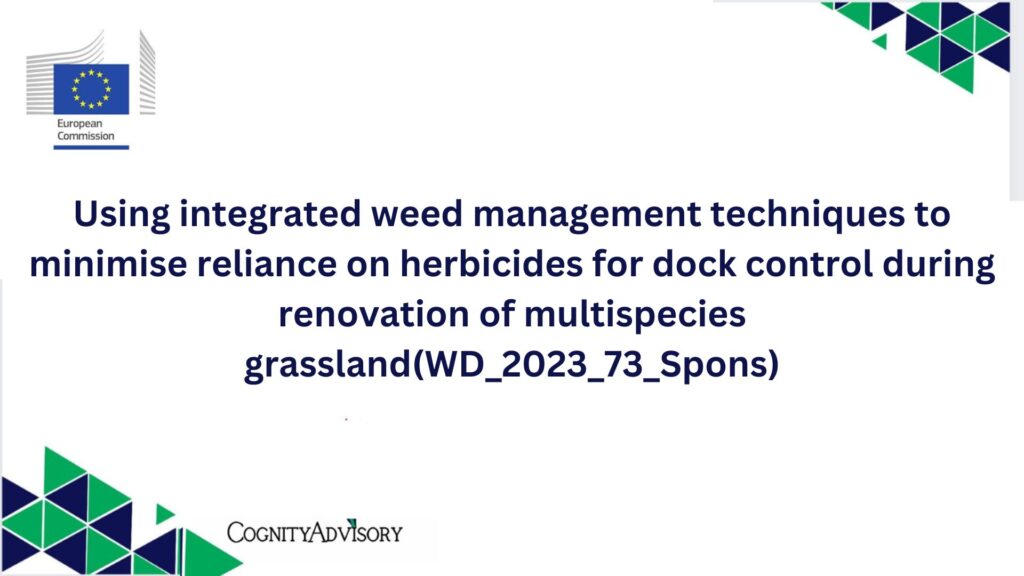Details
Deadline
17 July 2024Research Field
Natural sciencesFunding Type
FundingCareer Stage
First Stage Researcher (R1) (Up to the point of PhD)European Research Programme
Not funded by a EU programme
About
Outline
| Post summaryThe Food Vision 2030 Strategy sets out a vision for Ireland to become a world leader in Sustainable Food Systems over the next decade. Clover-based and multispecies grassland can improve the environmental performance of farms in terms of, for example, lowering greenhouse gas emissions. However, the presence of clover and herbs such as chicory and plantain greatly restricts herbicide options for weed control, and in particular dock control, in grassland. Lack of good options for dock control during grassland renovation is an important disincentive for the adoption of multispecies grassland on farms. This project will investigate sustainable practices such as use integrated weed management (IPM) techniques and non-herbicide weed control of multi-species grassland with a focus on grassland renovation. Practices to be investigated will include deep ploughing to replace glyphosate for the destruction of the existing sward and the use of rapidly establishing cover crops to minimise weed seedling establish in the re-sown sward.The Ph.D student will be part of the team at Solohead Teagasc Co. Tipperary under the guidance of Teagasc supervisor Dr. James Humphreys and Dr.Imelda Casey at South Eastern Technological University. They will also have the support and guidance of Dr. Imelda Casey and her team at the South East Technological University, Waterford. Some academic modules will be undertaken at SETU. |
What is funded
| Value of the scholarship per year for four years | €25,000 tax free per annum to the student. €5,750 per annum for SETU fees |
Duration
| Duration | 4 Years( 48 months) |
| Status: Full-time / part-time | Full time |
Eligibility
| Person specificationQualificationsEssentialApplicants should have a good primary degree (First or 2.1 Honours) or M.Sc. in an appropriate discipline (Agricultural Science, Environmental Science, Earth Sciences, etc.). The successful candidate should be highly self-motivated and be prepared for field and laboratory work with modern analytical equipment. DesirableThey will conduct both field and laboratory work. Field sampling and laboratory experimental and analytical skills are highly desirable. A good practical knowledge of Irish agricultural production systems is essential. |
| Knowledge & ExperienceEssentialA good practical knowledge of Irish agricultural production systems is essential. Applicants must be fluent in English (spoken and written) and must hold a full EU driving licence. Desirable:Experience in laboratory research and/or field trials.Experience with statistical packages would be an advantage.The applicant has conducted an undergraduate research project or trial and/or has fulfilled work placements at a relevant agri- research centre Skills & CompetenciesEssentialApplicants whose first language is not English must submit evidence of competency in English, please see SETUs English Language Requirements for details. The applicant must be highly motivated, be able to think and work independently, and have good communication and teamwork skills.Competent in Microsoft Word, Excel, and PowerpointApplicants whose first language is not English must submit evidence of competency in English, please see SETU English Language Requirementsfor details. Desirable .. Scientific writing skills. Use of referencing software and statistical packages |
